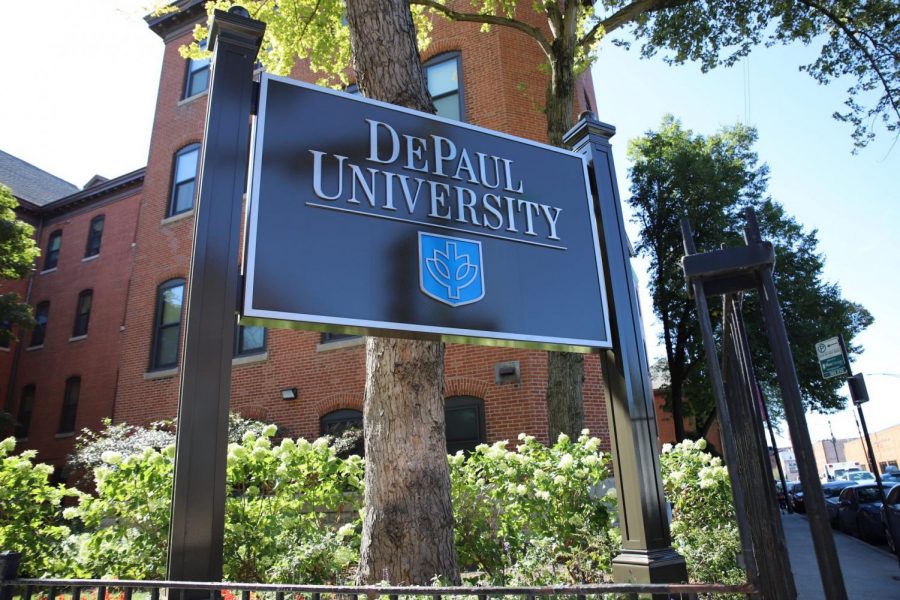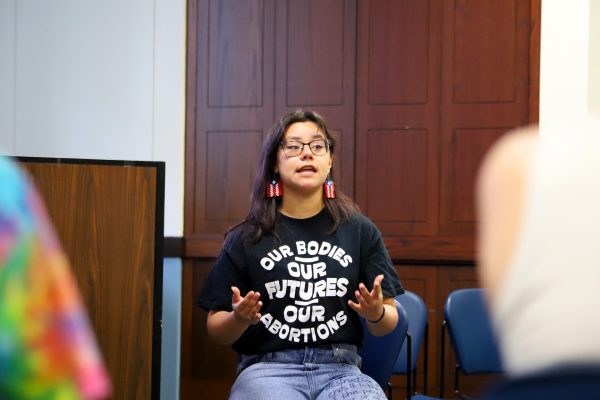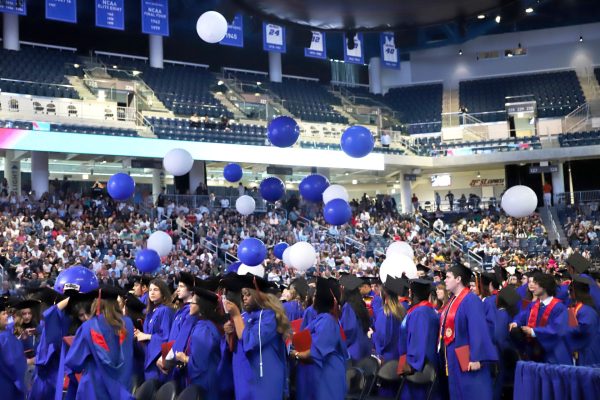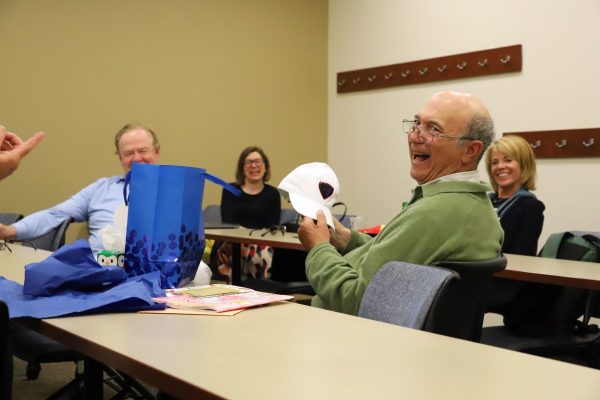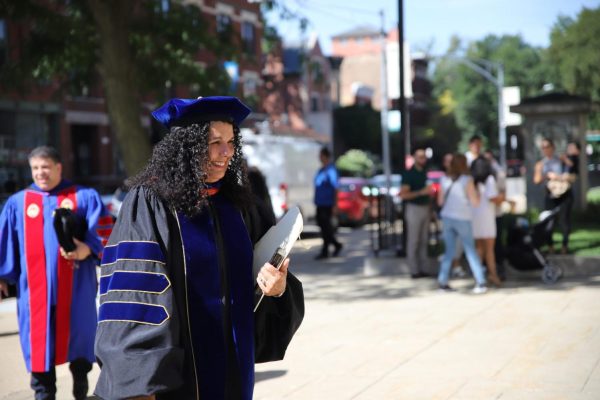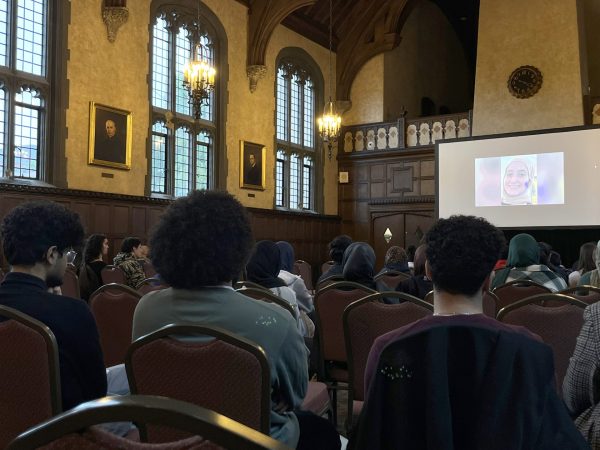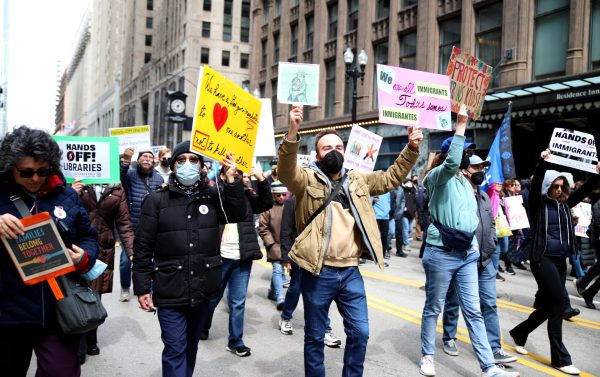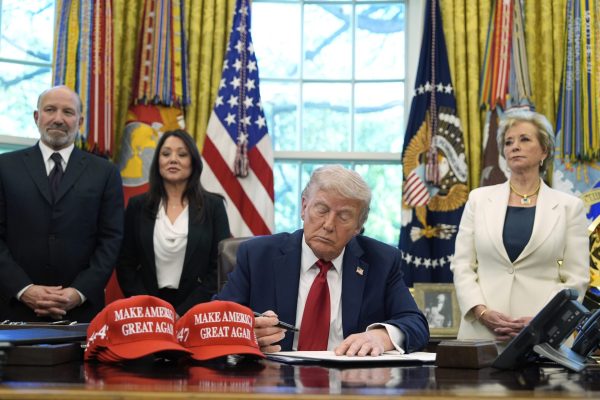SGA makes changes to elections process in light of Covid-19
Bianca Cseke | The DePaulia for The DePaulia
DePaul University Lincoln Park campus.
The Covid-19 pandemic has altered many ways in which DePaul’s Student Government Association (SGA) functions — including how it holds its general body meetings. As SGA has adapted to the global health crisis, a key component of SGA will look different this quarter: its elections process.
When classes transitioned online for spring quarter last year, SGA moved its elections to an online format. This quarter, SGA will once again hold elections online.
Arantxa Reyes, SGA’s PR coordinator, served as the elections and community engagement coordinator last year and said she had experience with putting the elections online and that this year’s election “models” last year’s
“It’s a lot of using DeHUB as a way of outreach and just organizational things and managing candidate materials that way,” Reyes said. “DeHUB has really been a great tool to use for that.”
In addition, SGA has changed the number of signatures needed to get on the ballot, a crucial part of running for SGA. The number was reduced to just 25 signatures, which is approximately a fourth of what is regularly required, depending on the position.
“Getting on the ballot is hugely important, which means you have to get 25 signatures to run,” said Wesley Janicki, SGA’s executive vice president of facility operations. “This is normally 250 for President and VP [Vice President], and 100 for all other positions, but it was reduced due to Covid-19.”
Due to the Covid-19 pandemic, on-campus campaigning has been an issue, so candidates and SGA have been communicating primarily through social media. In previous years, SGA would sit in the Student Center to encourage students to vote, something that they cannot do this year.
Jane Pallos, SGA’s elections coordinator, explained how candidates have used social media to communicate their message and that they must get approval from her before they post anything online.
“I’ve seen blogs, websites, Instagrams, Facebooks, all kinds of graphics and videos,” Pallos said. “All the students, whatever they post, has to be sent to me for approval, and so, when I see that they’ve got like a blog and they put the DePaul logo on it … that’s not something that they can post because DePaul doesn’t endorse individual candidates.”
Overall, Pallos said she has been “impressed” with the way candidates have organized and run their campaigns.
“This is some of the coolest campaigns that I’ve seen, at least at DePaul from my end,” Pallos said. “Being a student is very different I guess from being in my position. Yes, I’m a student, but in my position, it’s a different perspective. It’s really cool that I get to see how they’re working with other people and how they’re getting their word out in a bunch of different ways.”
Covid-19 could also impact voter turnout. Janicki’s estimate using voting totals from the two referenda in the spring is that roughly 3.9% of the student body voted in SGA elections — a number that is anticipated to be smaller this fall.
To increase voter turnout this quarter, Pallos said SGA’s Elections Operations Board (EOB) has been helping her with the elections process and they have been connecting with professors and students to spread information about this quarter’s elections.
“We are individually talking to our professors or reaching out to students that we normally wouldn’t talk to and we’re spreading … this news more out to DePaul students because we’re sending them through emails and I have created graphics that we’re posting all over,” Pallos said.
Pallos added that they are “fortunate” to have their particular platforms to connect with others despite not being in-person.
“I think that the communication, while we aren’t face-to-face, we are so fortunate enough to have the platforms that we do to reach out to people and hopefully we can see higher than 4% of DePaul students voting,” Pallos said.
This Tuesday at 5:30 p.m., SGA will hold a “Meet the Candidates” event, allowing students to learn about those running for positions on SGA. Pallos will moderate the event, giving each candidate a chance to talk about themselves and their platform.
“That’s kind of the candidates’ time to give their pitch and say why they believe that they’re the best candidate,” Pallos said. “Each candidate is going to have a couple of minutes to talk to the community that is present there and tell them a little about themselves and their initiatives.”
In previous years, the event allowed students to speak directly with the candidates but that has changed, according to Janicki. This is not ideal in the eyes of all.
“Most students hear very little from the candidates about [their] platform, as opposed to during the non-Covid petitioning process which normally requires you to get 100 students to sign, each of which may ask you hard questions about policy,” Janicki said. “This means that accountability drops off significantly, as candidates and the winners of the election, are hardly held to anything. A debate or town hall could definitely do this, but that all is conjecture.”
Voting begins Monday at 9 a.m. and will end on Thursday at 12 p.m. For more information on elections and about the candidate’s running, visit SGA’s website.


